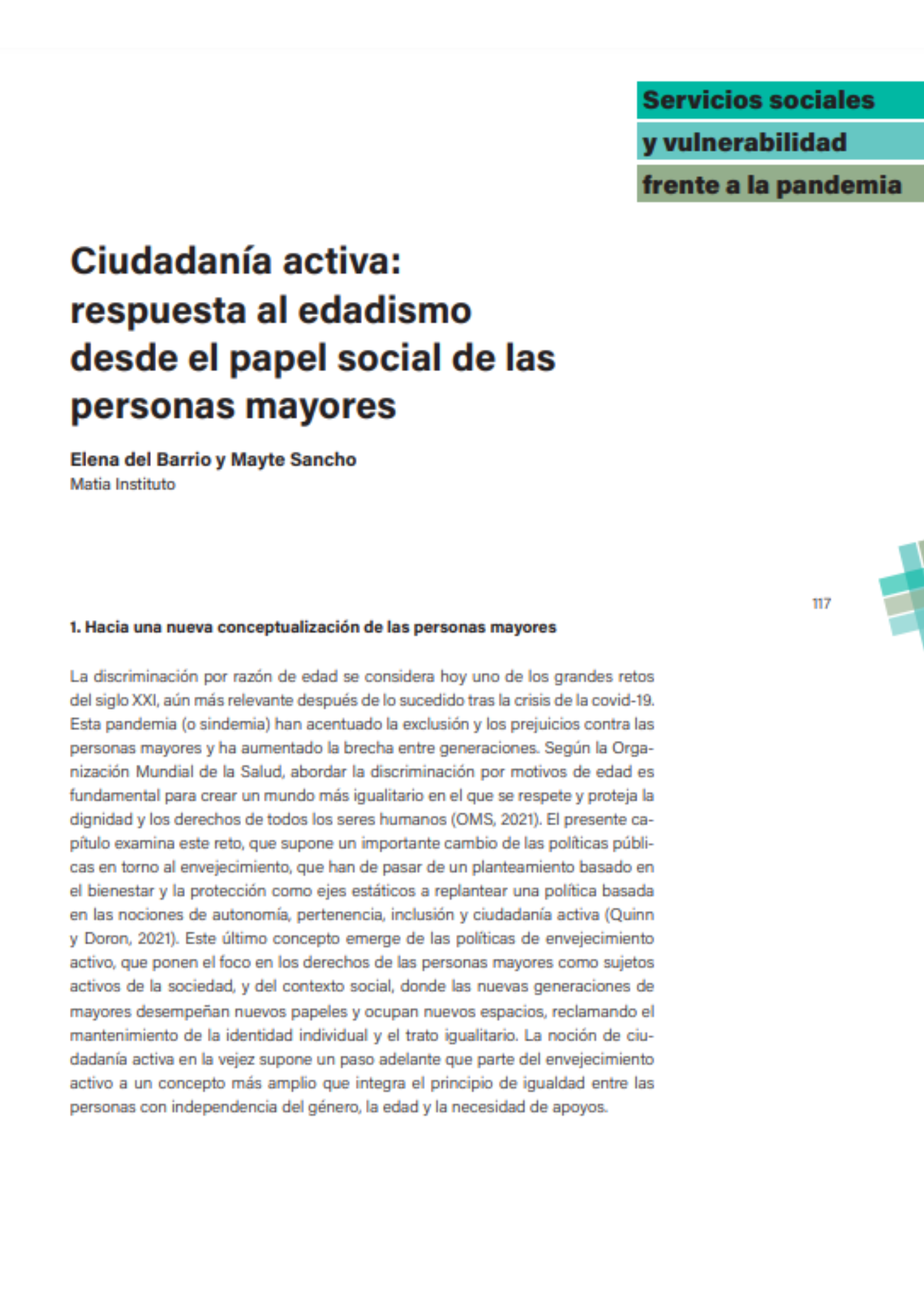Active citizenship: responding to ageism through the social role of older people

Age discrimination is now considered one of the major challenges of the 21st century, even more relevant after what happened in the aftermath of the covid-19 crisis. This pandemic (or syndemic) has accentuated exclusion and prejudice against older people and widened the gap between generations. According to the World Health Organization, addressing age discrimination is central to creating a more equal world in which the dignity and rights of all human beings are respected and protected.
This chapter examines this challenge, which implies a major shift in public policy on ageing from an approach based on welfare and protection as static axes to rethinking policy based on notions of autonomy, belonging, inclusion and active citizenship.
The latter concept emerges from active ageing policies, which focus on the rights of older people as active subjects of society, and from the social context, where new generations of older people play new roles and occupy new spaces, demanding the maintenance of individual identity and equal treatment.


